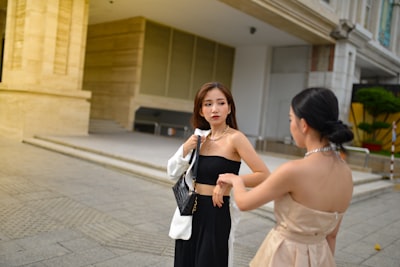Abstract
This article explores the reported incident where Angel Chong’s participation in the Miss Hong Kong beauty pageant allegedly ‘angered’ Beijing’s liaison office, according to media sources. Situating the case within the socio-political context of Hong Kong–Mainland China relations, we analyze the roles of cultural events, state influence, and identity politics in contemporary Hong Kong society.
Background or Context
The Miss Hong Kong pageant, organized by Television Broadcasts Limited (TVB), is a culturally significant event with a history dating back to the 1970s. Over time, it has served as a reflection of local values, aspirations, and the evolving identity of Hong Kong. The Beijing Liaison Office, the mainland's official representative in Hong Kong, plays a key role in monitoring and influencing the city's political and socio-cultural affairs, especially since the 1997 handover and amid heightened tensions following the 2019 protests and enactment of the National Security Law.
Analysis and Discussion
Key Terms and Concepts
- Beauty pageant: Public competitions often judged on physical appearance, talent, and sometimes advocacy or public speaking.
- Bid: An application or attempt to participate in a competition.
- Beijing’s liaison office: The official body representing the People’s Republic of China in Hong Kong, holding significant symbolic and practical power.
- National identity: A sense of a shared identity based on culture, language, or political allegiance, particularly relevant in post-1997 Hong Kong.
Main Subjects and Actions
Angel Chong, an individual pursuing participation in an iconic local event, becomes the subject of bureaucratic or political disapproval from an arm of the central Chinese government. The alleged anger of the liaison office suggests an underlying surveillance or control over even seemingly apolitical cultural spheres.
Academic Context
According to Sin (2022), beauty pageants have often functioned as a locus for expressions of femininity, modernity, and, in post-colonial contexts, the negotiation of local versus national identity. Post-handover Hong Kong has experienced an increasing assertion of central Chinese authority, especially in domains seen as ‘soft power’—media, education, and culture (Fung, 2017). Contesting or claiming participation in such spaces can be imbued with political symbolism.
Causes, Effects, and Consequences
A plausible cause of Beijing's reported displeasure may stem from the authorities' heightened sensitivity towards public figures or events that could challenge conformity to national narratives or suggest alternative models of identity and representation. The consequences of such interventions can be viewed through the lens of cultural hegemony (Gramsci, 1971), whereby popular culture is shaped to reinforce dominant power structures.
Similar instances have occurred, notably with politically outspoken celebrities or artistic productions in Hong Kong and Mainland China. For example, Cantopop singer Denise Ho's activism led to her blacklisting from Mainland markets.
Scholarly Perspectives
Scholars such as Veg (2019) and Fong (2020) have examined the narrowing of Hong Kong’s civil liberties and the increasing politicization of everyday life. The scrutiny of Angel Chong’s beauty pageant bid exemplifies this trend and highlights the contested nature of identity, autonomy, and cultural space within Hong Kong.
Conclusion
The alleged reaction by Beijing’s liaison office to Angel Chong’s participation in a culturally significant, yet ostensibly non-political, event reflects the intensification of political sensitivity in Hong Kong. It raises wider questions about autonomy, the breadth of state oversight, and the future of cultural expression in the city. Further research could explore the long-term effects of such interventions on Hong Kong’s civil society and the evolution of identity politics under ‘One Country, Two Systems’.
This article was inspired by the headline: 'Angel Chong’s Miss Hong Kong bid ‘angered’ Beijing’s liaison office: sources'.

Comments
No comments yet. Be the first to comment!